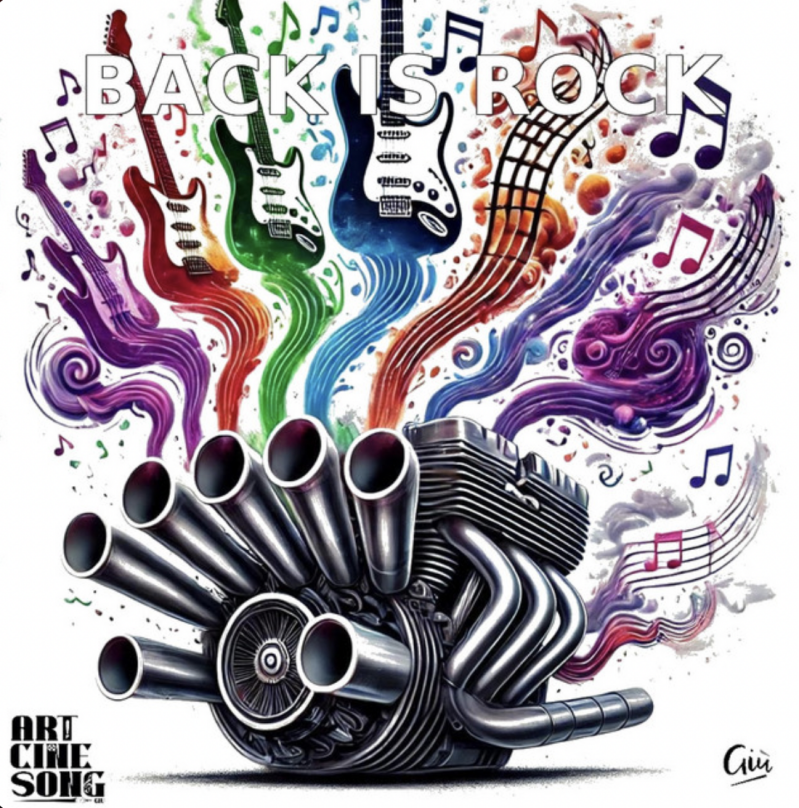
Some songs hit like a fist. Others drift like a memory. But every now and then, a song appears that feels like a message from beyond time — a whisper from a world long gone. “Neandertal,” the latest release from French singer-songwriter Giù, is one of those rare creations. It’s not merely a track — it’s a resurrection. A sonic ritual that imagines, with heartbreaking clarity, what it might have felt like to be the last of a kind. The final Neanderthal. Alone. Thinking. Remembering. Facing the void of extinction with no one left to bear witness.
While most music today chases trends, streaming algorithms, and instant gratification, Giù turns his gaze inward — and backward. “Neandertal” is an artistic act of defiance. He dares to wonder: what if that last Neanderthal had thoughts? Regrets? A sense of solitude so vast it bordered on the spiritual? Through this question, he crafts a rock ballad that doesn't just tell a story — it inhabits it.
At the heart of the song lies an act of radical empathy. Giù doesn't treat the Neanderthal as a primitive fossil from textbooks. He grants him dignity. Imagination. Pain. The kind of introspection that transcends evolution and touches something universal. What does it mean to be the last of your species? What kind of silence stretches around you when even your language has no one left to understand it? “Neandertal” becomes the answer — not in words, but in sound.
The track opens with a piano, slow and deliberate, like footsteps echoing inside a forgotten cave. There’s a stillness to it — not empty, but sacred. Then the guitars rise, not in fury, but in mourning. They shimmer like the final rays of a setting sun over a world that will never return. Percussion builds gradually, echoing the pulse of a heart that beats not for survival, but for remembrance. Every note is soaked in sorrow, every crescendo feels like a farewell.
And then comes Giù’s voice — low, worn, achingly human. He doesn’t sing the song; he inhabits it. There’s no theatrical bravado, no forced intensity. Just a voice that sounds as if it has traveled through centuries to reach us. His delivery aches with restraint, with the burden of knowledge that what once was will never be again. His words cut through like a slow-moving current of grief, deliberate and haunting.
Musically, the track draws from towering influences — Elton John’s dramatic balladry, Kansas’s epic arrangements, Serge Gainsbourg’s poetic restraint. But these aren’t borrowed sounds. Giù doesn’t imitate; he channels. The result is a composition that feels both massive and intimate, grand yet deeply personal. It’s rock music, yes, but it’s also requiem, confession, and prophecy.
And perhaps the most striking thing about “Neandertal” is its relevance. Though it speaks of a long-extinct ancestor, it holds a mirror up to us, today. What if we were the ones nearing the edge of disappearance? What if, in the end, we too became echoes in caves, scratches on stone, stories no one remembered? The song reminds us that extinction is not just historical — it’s emotional. Cultural. Human.
“Neandertal” does not lecture or moralize. It grieves. It yearns. It resurrects the forgotten. And in doing so, it asks us to consider our place in the great timeline of existence. Not as rulers of the Earth, but as passing chapters in a book far older than we can imagine.
Yet even within that bleakness, Giù finds beauty. His artistry transforms absence into presence. The loneliness of the Neanderthal becomes a song. A final scream into the wind. A melody no one heard — until now. He offers us not just a piece of music, but a monument carved in sound. A eulogy without a grave.
For those willing to listen — truly listen — “Neandertal” is not just a track. It is an experience. It leaves a mark. It poses questions that stay with you long after the final chord fades. Who mourns the forgotten? Who sings for the extinct?
Giù does.
And in doing so, he reminds us that art can be memory. That sound can become archaeology. And that even in the echo of extinction, there is still music to be made — still stories to be told — still souls to be honored.
Añadir comentario
Comentarios